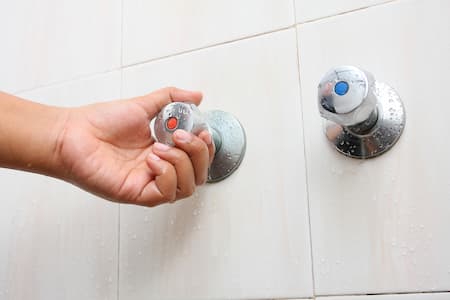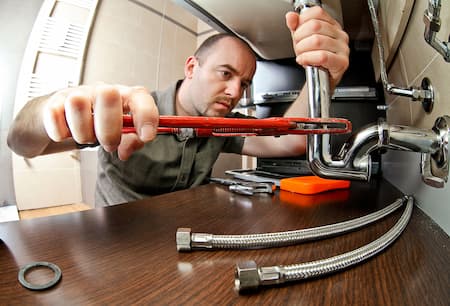Top Liquids for Success: The Best Liquid to Unclog Your Bathroom Sink
Introduction
Clogged bathroom sinks can be a real headache, right? Whether it’s hair, soap scum, or those elusive bits of toothpaste that seem to accumulate over time, getting rid of these blockages is essential for smooth daily routines. In this comprehensive guide, we’ll delve into the Top Liquids for Success: The Best Liquid to Unclog Your Bathroom Sink. We’ll explore various solutions ranging from DIY remedies to professional plumbing assistance, ensuring you have all the tools at your disposal.
But before we dive in, let’s set the stage: clogged drains are not just an inconvenience; they can lead to more significant plumbing issues down the line. So whether you're searching for “cheap plumber near me” or looking for effective home remedies, this article will serve as your go-to resource.
Top Liquids for Success: The Best Liquid to Unclog Your Bathroom Sink
When it comes to unclogging your bathroom sink, the liquid you choose can make all the difference. Some liquids work wonders while others may leave you high and dry. Here’s a rundown of some of the best options available:
1. Boiling Water: Nature's Miracle Worker
Boiling water might sound simple, but it's incredibly effective against minor clogs. The heat helps dissolve soap scum and grease that builds up in pipes.
- How to use:
- Why it works: Heat breaks down solidified fats and softens other debris.
2. Baking Soda and Vinegar: The Dynamic Duo
This classic combination is often touted as one of the best natural remedies for unclogging drains.
- Instructions:
- Effectiveness: The chemical reaction between baking soda and vinegar helps dislodge minor clogs by fizzing away debris.
3. Enzymatic Drain Cleaners: Eco-Friendly Solutions
If you’re looking for a more environmentally friendly option, enzymatic drain cleaners are worth considering.
-
Benefits: These products use natural enzymes to break down organic material without harsh chemicals.
-
Usage Tips: Follow the instructions on the package closely for best results.
4. Chemical Drain Cleaners: A Quick Fix?
While chemical drain cleaners are effective and widely available, they come with risks associated with their use.
-
Considerations:
-
Always read labels carefully.
-
Avoid mixing different types of cleaners as this can produce harmful gases.
-
Safety First: Wear gloves and goggles when using these products.
5. Plumber's Snake: A Mechanical Approach
Sometimes liquids just won’t cut it! When faced with stubborn clogs, a plumber's snake can be a lifesaver.
-
How to Use:
-
Insert the snake into the drain until you feel resistance.
-
Rotate the handle to break apart any blockages.
-
Pro Tip: If you're uncomfortable using these tools yourself, don’t hesitate to call “emergency plumbers near me”.
Why Clogs Happen in Bathroom Sinks
Understanding why clogs occur in your bathroom sink can help prevent future issues.
6. Hair Buildup: The Usual Suspect
Hair is one of the leading causes of clogged drains in bathrooms.
- Prevention Tips: Use strainers over your sink drains and clean them regularly.
7. Soap Scum Accumulation
Over time, soap residue can build up inside pipes causing blockages that require serious intervention.
- Solution: Regularly clean your sink with appropriate cleaners that dissolve soap scum effectively.
8. Toothpaste Residue
It’s easy to overlook toothpaste as a clog culprit; however, remnants can combine with other materials plumbers Stockton to cause blockages.
- Cleaning Tip: Wipe down sinks after brushing teeth to minimize buildup.
Signs You Need Professional Help
Even if you've tried multiple liquids and home remedies without success, sometimes it's best to call in professionals like "plumbers near me".
9. Persistent Clogs Despite Remedies
If your sink keeps clogging despite your best efforts, there may be an underlying issue requiring professional attention.

10. Foul Odors from Your Drains
Unpleasant smells usually indicate more serious problems within your plumbing system; don't ignore them!
11. Recurring Backups
Repeated backups may signal bigger plumbing problems beyond just a simple clog; seeking out local “plumbing companies near me” could save you from extensive damage later on.
FAQ Section
Q1: What should I do if my bathroom sink is clogged? A1: Start by trying boiling water or baking soda and vinegar before considering chemical drain cleaners or calling a plumber if necessary.
Q2: How often should I clean my bathroom sink? A2: Regular cleaning once a week can help prevent buildup and clogs over time.
Q3: Are chemical drain cleaners safe? A3: They can be effective but pose risks if not used correctly; always follow instructions carefully and consider eco-friendly options first.

Q4: When should I call an emergency plumber? A4: Call an emergency plumber if you notice severe leaks or recurring backups that can't be resolved through standard methods.
Q5: Can I use essential oils in my sink? A5: Essential oils may offer pleasant scents but won’t necessarily help clear clogs—stick with proven methods instead!
Q6: How do I find good plumbers near me? A6: Look for reviews online or ask friends/family for recommendations based on their experiences.
Conclusion
Navigating bathroom sink clogs doesn’t have to be an overwhelming task when armed with knowledge about effective liquids and techniques! From natural remedies like boiling water and baking soda-vinegar combos to professional help from “the best plumbers near me,” you’ve got options galore!
Keep in mind that regular maintenance is key—clean your sinks frequently and pay attention when issues arise! If all else fails or if you're facing stubborn blockages beyond DIY fixes—don’t hesitate to reach out to local plumbing services!
With careful consideration of these liquids and strategies outlined above under “Top Liquids for Success: The Best Liquid to Unclog Your Bathroom Sink,” proper care will ensure smooth sailing—or rather draining—in no time!